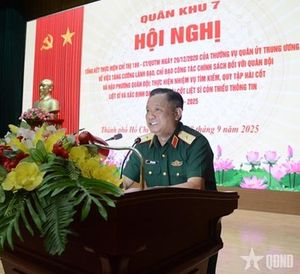With the continuing impact of global sanctions stemming from its war against Ukraine, Russia is not just fighting on the battlefield but also battling to keep its economy afloat. The Kremlin is increasingly relying on innovative methods to bypass the strict sanctions imposed by Western countries. From strategic partnerships to financial maneuvers, Russia is showcasing its adaptability amid economic pressures.
One significant maneuver involves the merger of Russia's largest state-owned oil enterprises: Rosneft, Gazprom Neft, and Lukoil. This merger, as reported by The Wall Street Journal, could potentially create the world’s second-largest oil producer, significantly augmenting Russia's capacity to influence global oil markets. If agreements are finalized, the combined entity would dwarf major players like ExxonMobil, producing roughly three times more oil than they do now. Such consolidation could provide Russia with leverage to dictate prices and support its wartime economy.
But it gets more complicated. While the merger looks appealing, it faces stiff opposition from the companies involved. Executives at both Rosneft and Lukoil have expressed discomfort with the plan, citing multiple reasons. There’s the need for significant investments to appease Lukoil’s shareholders, and the looming shadow of Western sanctions remains. Even with this consolidation, any company created would still be subject to international restrictions.
Meanwhile, Russia is not solely focused on domestic restructuring. It’s also leveraging international relationships, particularly with countries prone to ignore or circumvent sanctions. Nations like India, Turkey, and China have become key players, purchasing substantial amounts of Russian oil and gas. These countries blend Russian crude with their own before exporting it, effectively allowing Russia to sidestep sanctions and continue funneling money back to its war efforts.
Financial channels remain another avenue of resilience for Russia. Banks from nations with historical ties to the USSR, such as Kazakhstan and Kyrgyzstan, play pivotal roles. Despite the sanctions imposed by the West, these banks have continued facilitating transactions with Russia through money transfer systems. For example, Kazpochta, Kapital Bank, and others have been under scrutiny for their dealings with Russian banks following the invasion of Ukraine.
Interestingly, Kyrgyz banks have been reported as handling sanctions evasion quite adeptly. Increased trade relations with Western companies coincided with heightened financial transactions to Russia, raising questions about their role as intermediaries. Reports indicate Kyrgyzstan may continue to supply Russia with dual-use goods and equipment, supporting its military endeavors.
Even as banks attempt to navigate pressure from the U.S., international correspondent banks, including Turkish and UAE banks, remain engaged with Kyrgyz banks, accepting the reputational risks associated with these transactions. Notably, some international banks have ceased working with Kyrgyz banks, yet many continue, highlighting the complexity of global banking and the persistent demand for Russian resources.
On the technological front, Russia has also beefed up its card payment systems with the integration of Iran's Shetab with its own Mir system. This collaboration aims to strengthen financial ties and facilitate transactions free from Western scrutiny. The partnership not only mitigates the effects of sanctions but also positions Russia and Iran as more viable economic players, especially beneficial for both nations.
Attempting to stabilize its economy, Russia is exploring various paths, but each step appears laced with risk and uncertainty. For example, significant technological advancements are under threat due to sanctions affecting the procurement of certain components needed for shipbuilding and oil extraction. The renowned Zvezda shipyard has faced enormous delays due to restrictions on technology imports, which has prompted discussions about merging operations with the United Shipbuilding Corporation (USC).
Putin’s approval of this merger reflects the urgent need to streamline and revitalize Russia’s shipbuilding capabilities, which are integral to its naval power and operational effectiveness. With USC being Russia’s primary shipbuilder for military and civilian vessels, this merger reinforces the notion of resilience—adapting to pressures and finding ways to overcome operational challenges, even if it means consolidations.
Despite the rigorous sanctions and penalties from the U.S. and the broader Western coalition, Russia continues to seek pathways to fuel its economy. Exploiting opportunities with countries willing to defy or strategically navigate around these sanctions will provide short-term relief but leaves long-term viability hanging on the fingertips of political alliances and global economic realities.
Sanctions are meant to wear down the aggressor, but Russia's innovative avoidance tactics keep it afloat, highlighting the need for continued vigilance and perhaps even adaptation from the international community as it navigates through this complex international economic battleground.



